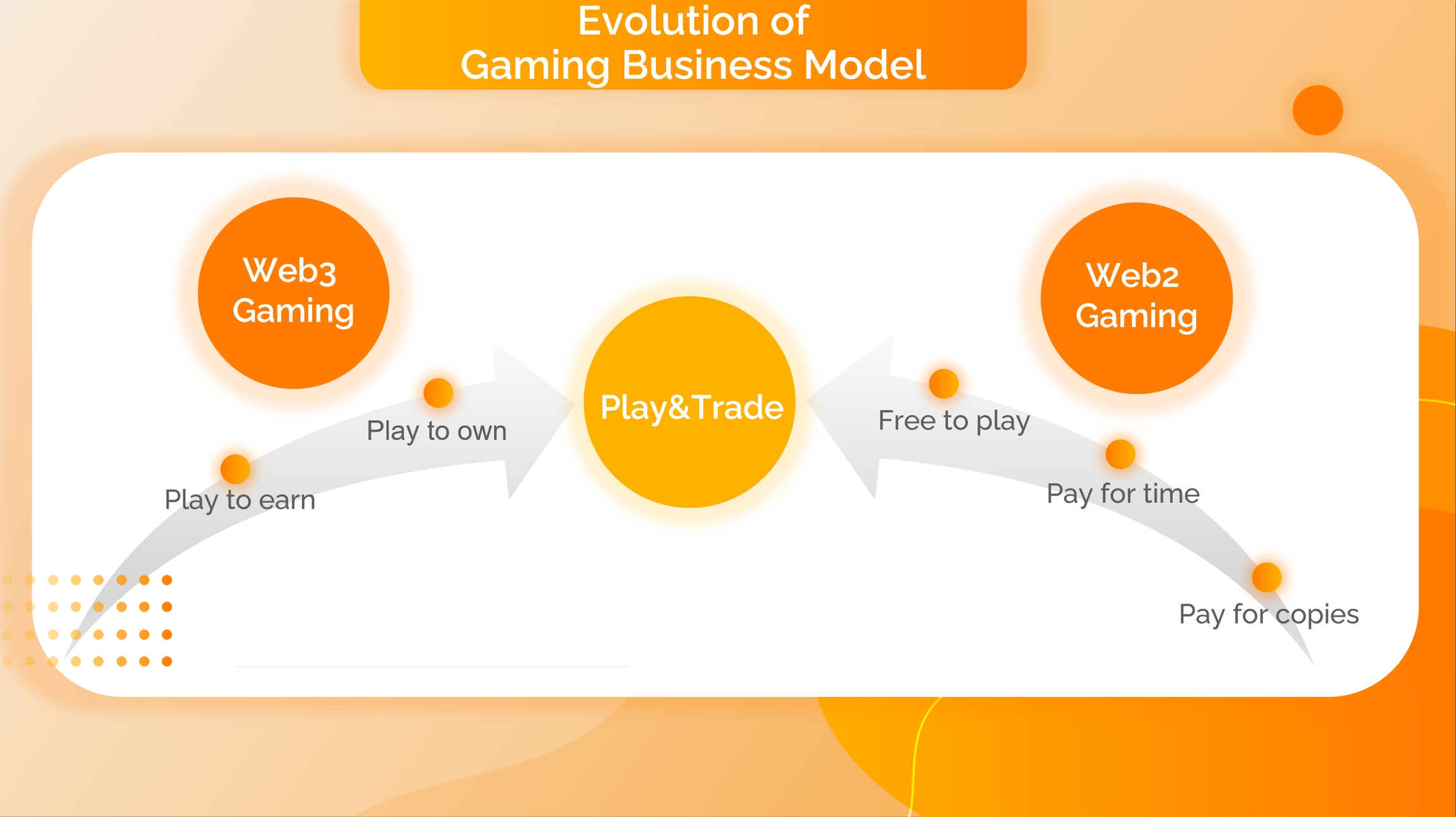Play and Trade
We believe that the "Play and Trade" business model, empowered by blockchain technology, will revolutionize the gaming industry's product landscape.
Currently, the mainstream business model of the game industry is free-to-play, but in order to maximise their commercial revenue in free-to-play games, developers will adopt Gacha or direct sale of props as the core source of commercial revenue and prohibit the trading of game assets between users to maximise the benefits of props sold by developers. But developers monopolise the sale of game props will greatly compress the user's enhancement strategy space, the player's cam only enhace by buying the fixed gift packs provided by developers, which will make the game strategy too single, and this PAY TO WIN design will make more and more users resistant to pay.
However, with the rise of blockchain technology, we believe that the "Play and Trade" business model will change the traditional commercialisation thinking of the game industry.
"Play and Trade" games establish economic systems that enable players to trade freely, thereby enhancing player willingness to pay and improving mid to long-term retention.
Blockchain technology addresses three major issues in building in-game economic systems:
In-game assets can be tokenized and freely traded by players.
Users can easily deposit and withdraw funds.
Developers can take tax from asset transactions both inside and outside the game.
Resolving these three issues lays the foundation for developers to construct free-trade economic systems within their games. The establishment of such economic systems can significantly increase users' willingness to spend within the game, as their mindset shifts from pure consumption to investment in assets with the potential for appreciation or depreciation.
Furthermore, when users own assets in the game, it can greatly improve their mid to long-term retention. As long as they haven't completely liquidated their game assets, users will periodically return to the game to manage their holdings.
Additionally, as developers give control over item generation and sales to users, players will have access to a vast marketplace for trading with other players. This opens up opportunities to explore various enhancement strategies or profit-making tactics, in contrast to the simple "pay-to-win" experience offered by traditional free-to-play models. The integration of economic systems into games can make the overall experience more engaging for users, which is why we believe games based on the "Play and Trade" business model have a genuine opportunity to challenge traditional free-to-play gacha games.

Last updated